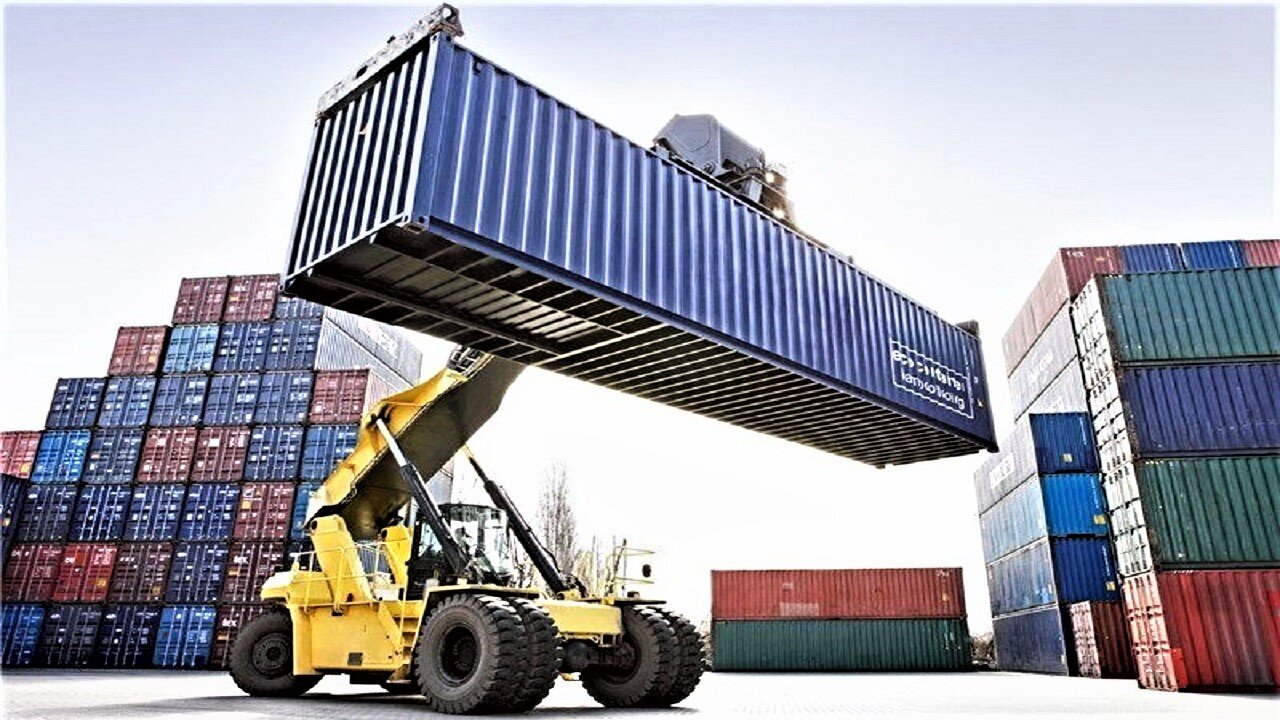Iran’s annual export to Pakistan up 18%

TEHRAN- The value of Iran’s non-oil export to Pakistan rose 18 percent in the past Iranian calendar year 1401 (ended on March 20), the spokesman of Trade Development Committee of the Iranian House of Industry, Mining, and Trade announced.
Ruhollah Latifi said that importing non-oil goods worth $1.488 billion from Iran, Pakistan was the fifth top export destination of the Islamic Republic in the previous year.
Iran imported non-oil commodities valued at $842 million from Pakistan in the past year, which was 170 percent higher than the figure of the preceding year, the official stated, adding that Pakistan was Iran’s fourth top source of import in the previous year.
Iranian Ambassador to Pakistan Mohammad-Ali Hosseini and Pakistani Finance Minister Senator Mohammad Ishaq Dar discussed the ways for increasing trade between the two countries in a meeting in Islamabad on Sunday.
Expressing their satisfaction that the trade between the two countries exceeded $2 billion, the two sides emphasized the need to take more effective steps to strengthen economic cooperation and help expand trade relations.
During the meeting, the Pakistani minister said that Pakistan attaches great importance to its relations with the friendly and brotherly country of Iran.
Appreciating the efforts of the Iranian ambassador during his diplomatic mission in Pakistan in order to strengthen the brotherly relations between the two neighboring countries, Senator Ishaq Dar praised the measures taken especially in the commercial and economic fields.
Expressing their satisfaction with the value of trade between Iran and Pakistan, which has exceeded two billion dollars, the two sides emphasized the need to identify new ways to help increase trade and develop economic cooperation.
Emphasizing the country's economic outlook, Pakistan's finance minister expressed confidence that despite economic challenges, Pakistan is on the path of progress and development.
Iranian ambassador to Pakistan for his part, appreciated the cooperation and support of the Pakistani government for the development of bilateral relations in various fields, and stated that the potential capacities of Iran and Pakistan are the main factor for the expansion of joint cooperation.
He added that bilateral trade between Iran and Pakistan has now reached $2.4 billion, but it is not compatible with the good political and people relations of the two neighbors and more efforts should be made to support the business community of the two countries.
Back in January, Iran and Pakistan signed a Memorandum of Understanding (MOU) on Monday to facilitate bilateral trade between the two countries.
The MOU was signed by Head of Iran’s Trade Promotion Organization (TPO) Alireza Peyman-Pak and Head of the Trade Development Authority of Pakistan (TDAP) Muhammad Zubair Motiwala.
Based on the MOU, which was signed on the sidelines of Iran’s Exclusive Exhibition in Karachi, the parties pledged to exchange business information, support each other’s private sectors, and provide the conditions and context for the presence of their trade delegations in the other country.
It was also agreed that both sides would take all the necessary measures to facilitate holding exhibitions in the opposite country, whenever required.
Speaking in the signing ceremony, Peyman-Pak said that signing this MOU was indicative of the two sides’ determination for removing the obstacles in the way of bilateral trade and prepare the ground for the businesspersons of both sides to bolster cooperation.
He considered the holding of exclusive exhibitions, exchanging trade delegations, and investment in joint production units as positive steps for knowing the capacities and needs of the two countries and expressed hope that such events would continue.
The TPO head further mentioned some obstacles and infrastructural problems that are hindering the two countries' mutual trade, including lack of banking relations, problems related to sea transportation and logistics, and tariff-related issues, saying that the Iranian government is willing to resolve such problems in collaboration with the Pakistani government.
Motiwala, for his part, said that the signed MOU is regarded as a major step to enhance bilateral trade to reach the target of five billion dollars annually.
As announced by Ruhollah Latifi, the value of Iran’s non-oil export to its neighbors rose 19 percent in the past Iranian year.
The official said that 75.184 million tons of non-oil commodities worth $30.537 billion were exported to the neighboring countries in the previous year.
According to Latifi, Iran imported 21.582 million tons of non-oil products valued at $28.305 billion from its neighbor in the past year, with a 10-percent growth in worth year on year.
Latifi, who is the former spokesman of the Islamic Republic of Iran Customs Administration (IRICA), further stated that Iran's non-oil trade with neighboring countries accounted for 52 percent of its total non-oil trade, exports to these countries for 57.5 percent of the total non-oil exports, and imports from them for 47.5 percent of the country's total non-oil imports in 1401, which shows the increasing importance of neighbors in Iran’s foreign trade and bringing foreign currency to meet the needs of the country under sanctions.
As previously announced by Latifi, the value of Iran’s non-oil export rose 10 percent in the past Iranian calendar year.
He said that 122.056 million tons of non-oil commodities worth $53.166 billion were exported in the previous year.
The official also announced that 37.18 million tons of non-oil commodities valued at $59.655 billion were imported to the country during the past year, with a 10 percent drop in weight, and a 13 percent rise in worth, year on year.
He went on to say that the country's non-oil trade reached 159.236 million tons worth $112.821 billion in the previous year, with an 11.2 percent growth year on year.
Increasing non-oil exports to the neighboring countries is one of the major plans that the Iranian government has been pursuing in recent years.
MA
Leave a Comment